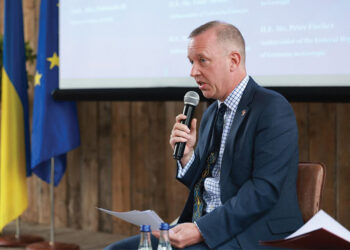The US House of Representatives overwhelmingly backed legislation on Thursday that will make it easier to export military equipment to Ukraine, reviving the “Lend-Lease Act” that helped defeat Hitler during World War Two.
The House passed the “Ukraine Democracy Defense Lend-Lease Act of 2022” by 417 to 10, three weeks after it sailed through the Senate with unanimous support. It next goes to the White House for President Joe Biden to sign into law.
“We have heard clearly from Ukrainian President Zelensky: Ukraine desperately needs more military aid to sustain its fight for sovereignty and defend its civilian population,” said Rep. John Katko, one of the bill’s cosponsors. “I cosponsored this bill and was proud to support it on the House floor because it will expand our nation’s ability to expeditiously deliver additional defense articles to the Government of Ukraine as they fight back against Vladimir Putin’s barbaric and unlawful invasion. This is a necessary step to protect the future of Ukraine and the safety of its people.”
The World War II-era lend-lease program was viewed as a pivotal tool that allowed for the allies’ victory against Nazi Germany. It allowed the US government to lend or lease war supplies, rather than selling them, to any country deemed vital to the United States’ defense. The aid particularly helped Great Britain in its battle against Nazi Germany.
The bill’s passage comes as President Biden urged Congress to swiftly pass a $33 billion assistance package for Ukraine as it continues to block Russian President Vladimir Putin’s assault. The White House says nearly all of the $3.5 billion in drawdown authority Congress provided last month for military assistance is depleted.
“The cost of this fight is not cheap, but caving to aggression is going to be more costly if we allow it to happen,” the President said in remarks from the White House Thursday morning. “We either back the Ukrainian people as they defend their country, or we stand by as the Russians continue their atrocities and aggression in Ukraine.”
By Ana Dumbadze














